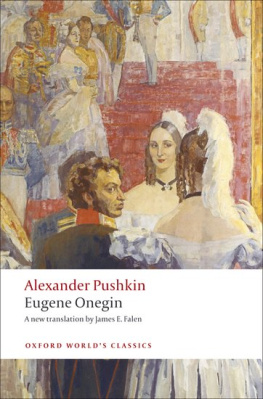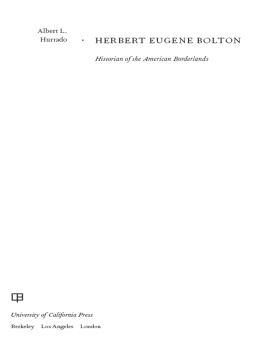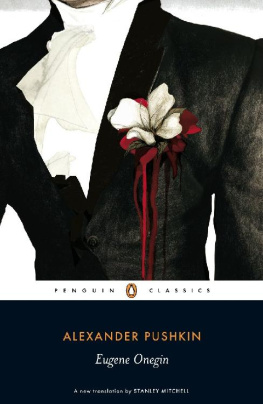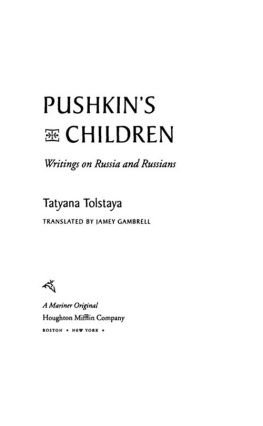 Great Clarendon Street, Oxford 0X2 6DP Oxford University Press is a department of the University of Oxford.
Great Clarendon Street, Oxford 0X2 6DP Oxford University Press is a department of the University of Oxford.
It furthers the Universitys objective of excellence in research, scholarship,
and education by publishing worldwide in Oxford New York Athens Auckland Bangkok Bogot Buenos Aires Calcutta
Cape Town Chennai Dar es Salaam Delhi Florence Hong Kong Istanbul
Karachi Kuala Lumpur Madrid Melbourne Mexico City Mumbai
Nairobi Paris Sao Paulo Singapore Taipei Tokyo Toronto Warsaw with associated companies in Berlin Ibadan Oxford is a registered trade mark of Oxford University Press
in the UK and in certain other countries Published in the United States
by Oxford University Press Inc., New York James E. Falen 1990, 1995 The moral rights of the author have been asserted Database right Oxford University Press (maker) First published as a Worlds Classics paperback 1995
Reissued as an Oxford Worlds Classics paperback 1998 All rights reserved. No part of this publication may be reproduced, stored in a retrieval system, or transmitted, in any form or by any means, without the prior permission in writing of Oxford University Press, or as expressly permitted by law, or under terms agreed with the appropriate reprographics rights organizations. Enquiries concerning reproduction outside the scope of the above should be sent to the Rights Department, Oxford University Press, at the address above You must not circulate this book in any other binding or cover
and you must impose this same condition on any acquirer British Library Cataloguing in Publication Data Data available Library of Congress Cataloging in Publication Data Pushkin, Aleksandr Sergeevich, 17991837.
[Evgenii Onegin. English]
Eugene Onegin: a novel in verse / Alexander Pushkin; translated
with an introduction and notes by James E. Falen.
Includes bibliographical references.
I.
Falen, James E., 1935. II. Title. III. Series.
PG3347. E8F35 1995 891.733dc20 9445634 ISBN 0192838997 5 7 9 10 8 6 Printed in Great Britain by
Cox & Wyman Ltd.
Reading, Berkshire OXFORD WORLDS CLASSICSFor over 100 years Oxford Worlds Classics have brought readers closer to the worlds great literature.
Now with over 700 titlesfrom the 4,000-year-old myths of Mesopotamia to the twentieth centurys greatest novelsthe series makes available lesser-known as well as celebrated writing.The pocket-sized hardbacks of the early years contained introductions by Virginia Woolf, T. S. Eliot, Graham Greene, and other literary figures which enriched the experience of reading. Today the series is recognized for its fine scholarship and reliability in texts that span world literature, drama and poetry, religion, philosophy, and politics. Each edition includes perceptive commentary and essential background information to meet the changing needs of readers.Refer to the to navigate through the material in this Oxford Worlds Classics ebook. Use the asterisks (*) throughout the text to access the hyperlinked Explanatory Notes.OXFORD WORLDS CLASSICS ALEXANDER PUSHKIN
ALEXANDER PUSHKIN
Eugene Onegin
A Novel in Verse Translated with an Introduction and Notes by
Translated with an Introduction and Notes by
JAMES E.
FALEN OXFORD WORLDS CLASSICSEUGENE ONEGIN ALEXANDER SERGEEVICH PUSHKIN was born in Moscow in 1799 into an old aristocratic family. As a schoolboy he demonstrated a precocious talent for verse and was recognized as a poetic prodigy by prominent older writers. In 1817 he received a nominal appointment in the government service, but for the most part he led a dissipated life in the capital while he continued to produce much highly polished light verse. His narrative poem, Ruslan and Lyudmila (publ. 1820), brought him widespread fame and secured his place as the leading figure in Russian poetry. At about the same time a few mildly seditious verses led to his banishment from the capital.
OXFORD WORLDS CLASSICSEUGENE ONEGIN ALEXANDER SERGEEVICH PUSHKIN was born in Moscow in 1799 into an old aristocratic family. As a schoolboy he demonstrated a precocious talent for verse and was recognized as a poetic prodigy by prominent older writers. In 1817 he received a nominal appointment in the government service, but for the most part he led a dissipated life in the capital while he continued to produce much highly polished light verse. His narrative poem, Ruslan and Lyudmila (publ. 1820), brought him widespread fame and secured his place as the leading figure in Russian poetry. At about the same time a few mildly seditious verses led to his banishment from the capital.
During this so-called southern exile, he composed several narrative poems and began his novel in verse, Eugene Onegm. As a result of further conflicts with state authorities he was condemned to a new period of exile at his familys estate of Mikhailovskoe. There he wrote some of his finest lyric poetry, completed his verse drama Boris Godunov, and continued work on Eugene Onegin. He was still in enforced absence from the capital when the Decembrist Revolt of 1825 took place. Although several of his friends were among those executed or imprisoned, he himself was not implicated in the affair, and in 1826 he was pardoned by the new Czar Nicholas I and permitted to return to Moscow. By the end of the decade, as he sought to become a truly professional writer, he turned increasingly to prose composition. In the especially fruitful autumn of 1830, while stranded at his estate of Boldino, he completed Eugene Onegin, wrote a major collection of prose stories (The Tales of Belkin), and composed his experimental Little Tragedies. In 1831, he married Natalya Goncharova and sought to put his personal and professional affairs on a more stable footing.
The rest of his life, however, was plagued by financial and marital woes, by the hostility of literary and political enemies, and by the younger generations dismissal of his recent work. His literary productivity diminished, but in the remarkable second Boldino autumn of 1833 he produced both his greatest prose tale, The Queen of Spades, and a last poetic masterpiece, The Bronze Horseman. In 1836 he completed his only novel-length work in prose, The Captains Daughter. Beleaguered by numerous adversaries and enraged by anonymous letters containing attacks on his honour, he was driven in 1837 to challenge an importunate admirer of his wife to a duel. The contest took place on 27 February, and two days later, the poet died from his wounds. JAMES E. FALEN is Professor of Russian at the University of Tennessee, where he teaches nineteenth- and twentieth-century Russian literature and Russian language. He is the author of Isaac Babel: Russian Master of the Short Story (University of Tennessee Press, 1974) and has published translations of lyric and dramatic verse by Alexander Pushkin.
He is currently working on translations of twentieth-century Russian poetry.
CONTENTS
INTRODUCTION
Alexander Pushkin (17991837) is the poet and writer whom Russians regard as both the source and the summit of their literature. Not only is he revered, like Shakespeare in the English tradition or Goethe in the German, as the supreme national poet, but he has become a kind of cultural myth, an iconic figure around whom a veritable cult of idolatry has been fashioned. This exalted status that Pushkin has been accorded in his own land has been something of a disservice to the living reality of his works, and it contrasts oddly with the more modest reputation that Pushkin has secured abroad. To many non-native readers of Russian literature the panegyrics of his compatriots seem excessive, and indeed, in their eyes, Pushkin has been somewhat overshadowed by the great Russian writers who came after him. They do not comprehend why these writers themselves generally grant him the first and highest place in their pantheon of artistic geniuses.
Next page





 Great Clarendon Street, Oxford 0X2 6DP Oxford University Press is a department of the University of Oxford.
Great Clarendon Street, Oxford 0X2 6DP Oxford University Press is a department of the University of Oxford. ALEXANDER PUSHKIN
ALEXANDER PUSHKIN OXFORD WORLDS CLASSICSEUGENE ONEGIN ALEXANDER SERGEEVICH PUSHKIN was born in Moscow in 1799 into an old aristocratic family. As a schoolboy he demonstrated a precocious talent for verse and was recognized as a poetic prodigy by prominent older writers. In 1817 he received a nominal appointment in the government service, but for the most part he led a dissipated life in the capital while he continued to produce much highly polished light verse. His narrative poem, Ruslan and Lyudmila (publ. 1820), brought him widespread fame and secured his place as the leading figure in Russian poetry. At about the same time a few mildly seditious verses led to his banishment from the capital.
OXFORD WORLDS CLASSICSEUGENE ONEGIN ALEXANDER SERGEEVICH PUSHKIN was born in Moscow in 1799 into an old aristocratic family. As a schoolboy he demonstrated a precocious talent for verse and was recognized as a poetic prodigy by prominent older writers. In 1817 he received a nominal appointment in the government service, but for the most part he led a dissipated life in the capital while he continued to produce much highly polished light verse. His narrative poem, Ruslan and Lyudmila (publ. 1820), brought him widespread fame and secured his place as the leading figure in Russian poetry. At about the same time a few mildly seditious verses led to his banishment from the capital.